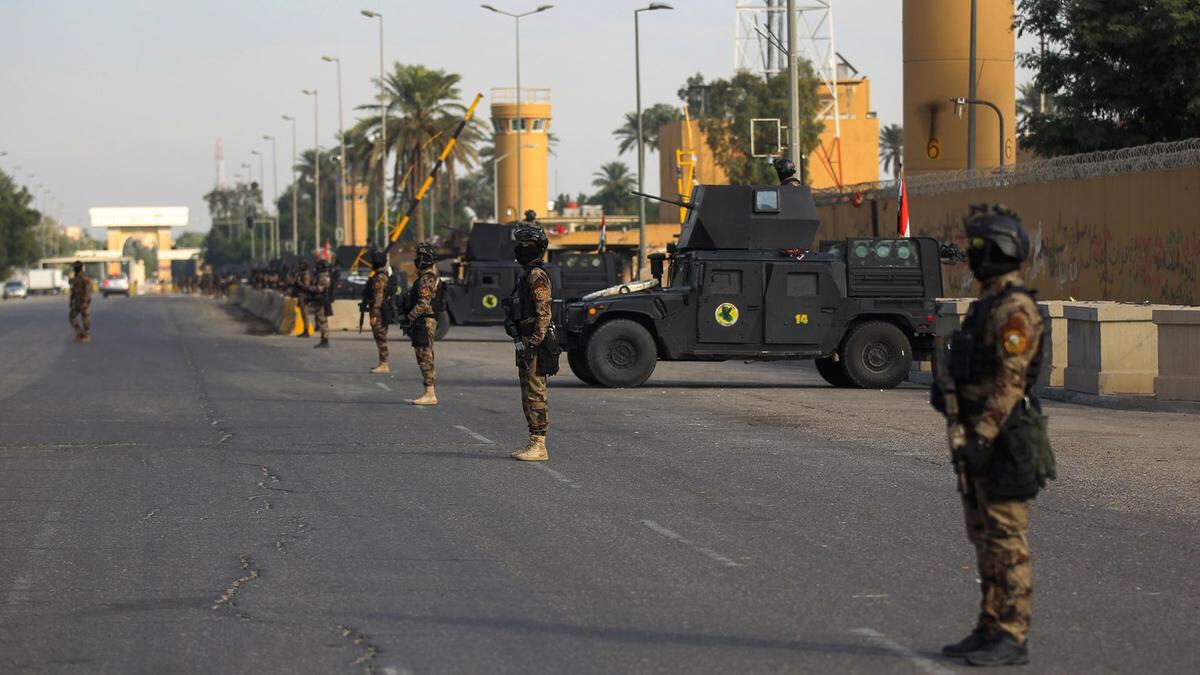Moqtada Al Sadr proposed last week to form a committee to halt attacks on diplomats after repeated rocket fire at the US embassy since the start of this year and at a British embassy convoy this month.
But officials in Baghdad expressed scepticism to The National the committee would yield results because it is beyond Parliament’s authority.
“The government has the executive power to enforce these things,” Iraqi MP Sarkwat Shams said.
“The government wants to share their failure with others, for example with Parliament, but it’s the government’s responsibility to protect foreign diplomats and not Parliament’s.
Another official said that an increase in attacks on diplomats and the potential closure of the US embassy would enhance Iran’s influence in Iraq.
“It is really up to the government to provide protection to foreign personnel stationed in the country and to ensure that no foreign powers will intervene in our internal politics,” he said.
Mr Al Sadr, who led the Mahdi army that fought foreign troops in Iraq after the 2003 US-led invasion, said: “Given the seriousness of the security situation that threatens the country’s present and future … we find it is an urgent interest to form a committee of security, military and parliamentary nature.”
Reports suggested that US Secretary of State Mike Pompeo told Iraqi leaders that Washington would shut down its embassy in Baghdad if the attacks did not stop.
Washington has blamed Iran-backed militias for the attacks.
Michael Knights of the Washington Institute for Near East Policy, who advises the US government, confirmed that the US was beginning the process of suspending embassy operations in Baghdad.
“That process takes quite a while, many, many months,” Mr Knights said.
“But intervening events in securing the IZ [Green Zone] can stop and reverse that process, something the US has flagged.”
US President Donald Trump’s decision to order the killing of Iranian general Qassem Suleimani outside Baghdad airport in January sparked widespread anger among Iraqi officials.
Since then, the Iraqi government has faced pressure to have foreign troops leave the country.
Parliament voted in January for the departure of forces, which was followed by a slow withdrawal of US and other coalition troops.
Shortly after the drone strike on Suleimani Iran-backed militia groups increased rocket and small-scale bomb attacks on the US embassy and Iraqi military bases that host US-led coalition troops.
The troops have been stationed in Iraq since 2014 to fight ISIS.
But because of the repeated attacks on US troops, the coalition has withdrawn from several bases across the country and reduced numbers amid fears of the coronavirus pandemic.
There are about 7,500 coalition forces in the country, including 5,000 US personnel.
Washington said this month that it planned to reduce its troops in Iraq to 3,000.
Updated: September 27, 2020 11:24 PM

No comments:
Post a Comment